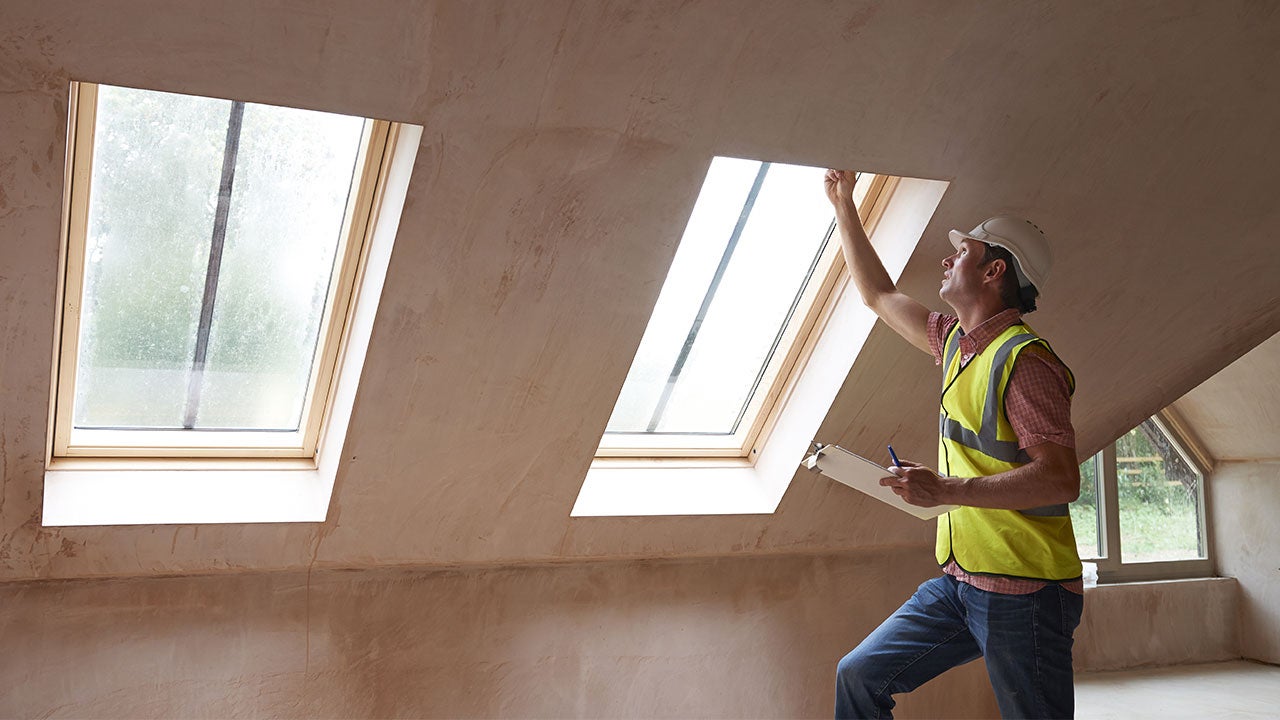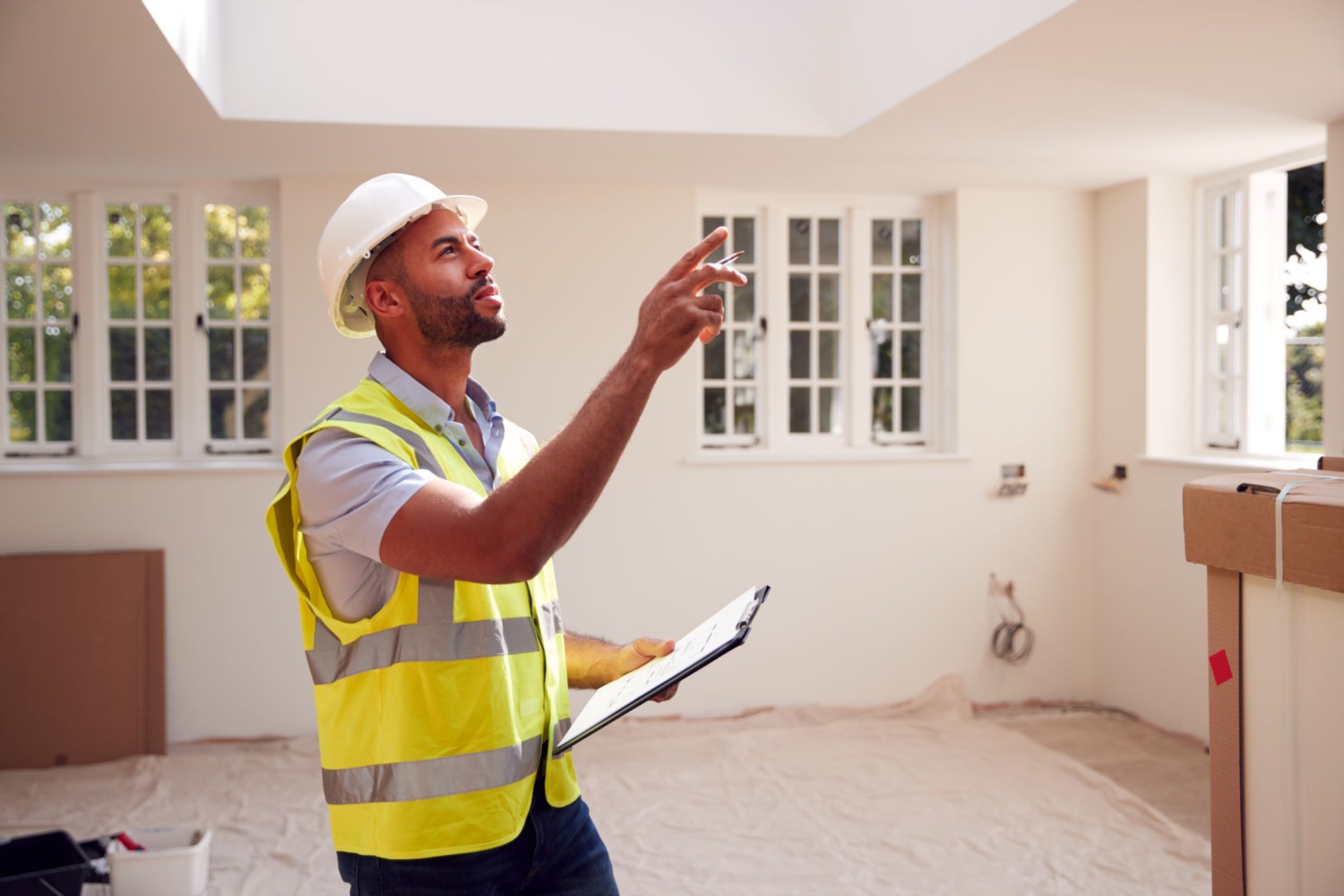Home>Home Maintenance>What Should The Buyer Do During A Home Inspection?


Home Maintenance
What Should The Buyer Do During A Home Inspection?
Modified: March 6, 2024
Find out what steps buyers should take during a home inspection to ensure a smooth home buying process and effective home maintenance.
(Many of the links in this article redirect to a specific reviewed product. Your purchase of these products through affiliate links helps to generate commission for Storables.com, at no extra cost. Learn more)
Introduction
Welcome to the exciting journey of buying a new home! One essential step in this process is the home inspection. When purchasing a house, it is crucial to have a thorough understanding of its condition before finalizing the deal. This is where the home inspection comes into play. A home inspection is a comprehensive assessment of a property’s condition carried out by a professional home inspector.
The purpose of a home inspection is to identify any existing or potential issues with the property. This includes evaluating the structural integrity, electrical systems, plumbing, HVAC, and other important components of the house. By uncovering any hidden problems, a home inspection provides buyers with valuable information to make informed decisions.
To ensure a successful home inspection, it is important for buyers to be actively involved in the process. This article will guide you on what you, as a buyer, should do during a home inspection to get the most out of this crucial step.
Key Takeaways:
- Be an Active Participant
Attend the home inspection, ask questions, take notes, and test appliances. This helps you understand the property’s condition and make informed decisions about repairs and upgrades. - Negotiate Wisely
After the inspection, evaluate issues, consult professionals, and communicate with the seller to negotiate repairs or price adjustments. This ensures that significant issues are addressed and protects your investment.
Preparing for the Home Inspection
Before the day of the home inspection, it is important to understand the purpose of this crucial step. A home inspection is not only about discovering potential issues with the property but also about gaining knowledge about its overall condition. This knowledge will help you make informed decisions regarding the purchase and future maintenance of the home.
When selecting a home inspector, be sure to choose someone who is qualified and experienced. Look for inspectors who are certified by reputable organizations such as the International Association of Certified Home Inspectors (InterNACHI) or the American Society of Home Inspectors (ASHI). These certifications ensure that the inspector has undergone rigorous training and adheres to professional standards.
Once you have selected a qualified home inspector, it is time to schedule the home inspection. Coordinate with the seller and the inspector to find a date and time that works for everyone involved. It is recommended to schedule the inspection during daylight hours so that the inspector can properly assess the property’s exterior.
Notify the seller that you will be scheduling a home inspection. This not only demonstrates your seriousness as a buyer but also gives the seller an opportunity to prepare the house for the inspection. It is important to respect the seller’s privacy and request their cooperation during the inspection process.
Attending the Home Inspection
The day of the home inspection has arrived, and it’s time for you as the buyer to actively participate in the process. Here are some important steps to follow during the inspection:
Arrive on time to show your dedication as a buyer and to have ample time to accompany the inspector throughout the property. Remember, the inspection can take a few hours, so plan your schedule accordingly.
Accompany the inspector as they assess the property. This will allow you to gain firsthand knowledge about the home and its systems. Pay attention to the inspector’s observations and ask questions along the way.
Don’t hesitate to ask questions during the inspection. Home inspectors are knowledgeable professionals who can provide valuable insights about the property. Inquire about any potential concerns, recommended repairs or upgrades, and the overall condition of the house.
Take notes during the inspection. This will help you remember important details later on and compare them to the inspection report. It’s easy to forget small details, so jotting them down can be beneficial.
If permitted by the inspector, take pictures or videos of notable findings. Visual documentation can serve as evidence and help you better understand any issues that may arise during the inspection.
Take the opportunity to test appliances and systems, such as turning on faucets, checking outlets, and operating the HVAC system. This will give you a firsthand experience of their functionality and help identify any immediate concerns.
By actively participating in the inspection process, you will gain a deeper understanding of the property’s condition and be better informed about potential repairs or upgrades that may be required. This knowledge will play a crucial role in your decision-making process.
Observing the Inspector’s Findings
During the home inspection, the inspector will uncover potential issues with the property. As a buyer, it’s important to closely observe the inspector’s findings and understand the implications. Here are some key aspects to consider:
Pay attention to potential issues flagged by the inspector. These may include structural defects, electrical or plumbing problems, moisture or mold issues, or any other areas of concern. Take note of these issues as they will impact the overall condition and value of the property.
Understanding the severity of problems is crucial. Some issues may be minor and easily rectifiable, while others may require more extensive repairs or upgrades. The inspector can provide insights into the seriousness of each problem, helping you prioritize and plan accordingly.
Assess any safety concerns highlighted by the inspector. This could involve issues such as faulty wiring, inadequate fire safety measures, or hazardous materials. Safety should be a top priority when considering a home purchase, so ensure that any safety concerns are addressed before proceeding.
Take note of maintenance and repair recommendations provided by the inspector. These recommendations may involve routine maintenance tasks or repairs necessary to ensure the longevity and functionality of the property. Understanding these recommendations will help you plan for future maintenance and budget accordingly.
By actively observing the inspector’s findings, you will have a clearer picture of the property’s condition and any potential issues that may need to be addressed. This information will be invaluable in the decision-making process and negotiating with the seller.
Be present during the home inspection to ask questions and learn about any potential issues with the property. Take notes and photos for reference.
Negotiating Repair Requests or Price Adjustments
After the home inspection, you will have a better understanding of the condition of the property. If significant issues are found, you may need to negotiate with the seller for repairs or price adjustments. Here are some important steps to follow:
Evaluate the significance of the issues discovered during the inspection. Some issues may be minor and easily addressed, while others may have a more significant impact on the property’s value and safety. Assessing the severity will help you determine the appropriate course of action.
Consult with professionals, such as contractors or specialists, to get a better understanding of the repairs required and their associated costs. This will help you make informed decisions during negotiations and ensure that you have reliable estimates for the necessary work.
Review any inspection contingencies outlined in your purchase agreement. These contingencies may specify timeframes for requesting repairs or adjustments, as well as the process for resolving any disputes. Familiarize yourself with these contingencies to ensure you comply with the terms of the agreement.
Communicate your findings with the seller. Provide them with a summary of the inspection report and clearly outline the repairs or adjustments you are requesting. Open and honest communication will facilitate a smoother negotiation process.
Negotiate the requests for repairs or adjustments with the seller. This may involve discussions about who will be responsible for completing the repairs, potential cost-sharing, or possible price reductions to compensate for the necessary work. It’s important to approach negotiations with a collaborative mindset to reach a mutually beneficial agreement.
By actively engaging in negotiations for repairs or price adjustments, you can ensure that any significant issues discovered during the inspection are appropriately addressed. This step is crucial in protecting your investment and ensuring that you are satisfied with the final terms of the purchase agreement.
Reviewing the Inspection Report
Once the home inspection is complete, the inspector will provide you with a detailed inspection report. This document contains valuable information about the property’s condition. Here’s what you need to do when reviewing the inspection report:
Understanding the report format is crucial. Most inspection reports are organized by sections, highlighting different areas of the property, such as the exterior, interior, plumbing, electrical, and HVAC systems. Familiarize yourself with the layout and structure of the report to easily navigate and comprehend the information.
Analyze the findings in the report carefully. Take the time to read through each section, paying close attention to any potential issues, recommendations, or safety concerns highlighted by the inspector. Note any specific defects or maintenance needs that are mentioned.
If needed, consult with experts in specific fields to gain a better understanding of certain findings in the report. For instance, if there are concerns about the foundation or the electrical system, seeking advice from a structural engineer or an electrician can provide you with expert insights and guidance in making informed decisions.
Prioritize repairs and upgrades based on the findings in the report. Some issues may require immediate attention, while others may be more aesthetic or non-essential in nature. By categorizing the repairs and upgrades, you can allocate your resources and prioritize the most critical items.
By carefully reviewing the inspection report and understanding its contents, you will have a clearer understanding of the property’s condition and any necessary repairs or upgrades. This knowledge will empower you to make informed decisions about your potential home purchase and ensure that you address any immediate needs to maintain the property’s integrity and value.
Conclusion
Engaging in a home inspection as a buyer is a vital part of the homebuying process. It allows you to gain insight into the condition of the property and make informed decisions. By following the steps outlined in this article, you can maximize the value of your home inspection. Here are some key takeaways:
Preparing for the home inspection involves understanding its purpose, selecting a qualified inspector, scheduling the inspection, and notifying the seller.
Attending the home inspection requires arriving on time, accompanying the inspector, asking questions, taking notes, taking pictures or videos, and testing appliances and systems.
Observing the inspector’s findings involves paying attention to potential issues, understanding the severity of problems, assessing safety concerns, and taking note of maintenance and repair recommendations.
Negotiating repair requests or price adjustments entails evaluating significant issues, consulting with professionals, reviewing inspection contingencies, communicating with the seller, and negotiating requests for repairs or adjustments.
Reviewing the inspection report involves understanding the report format, analyzing the findings, consulting with experts if needed, and prioritizing repairs and upgrades.
In conclusion, actively participating in the home inspection process as a buyer empowers you with valuable knowledge and insights into the property you are considering purchasing. By understanding the purpose of the inspection, effectively communicating with the seller, and making informed decisions based on the inspector’s findings, you can navigate the homebuying journey with confidence. Remember, a thorough home inspection is an investment in your future homeowner’s peace of mind.
Frequently Asked Questions about What Should The Buyer Do During A Home Inspection?
Was this page helpful?
At Storables.com, we guarantee accurate and reliable information. Our content, validated by Expert Board Contributors, is crafted following stringent Editorial Policies. We're committed to providing you with well-researched, expert-backed insights for all your informational needs.















0 thoughts on “What Should The Buyer Do During A Home Inspection?”